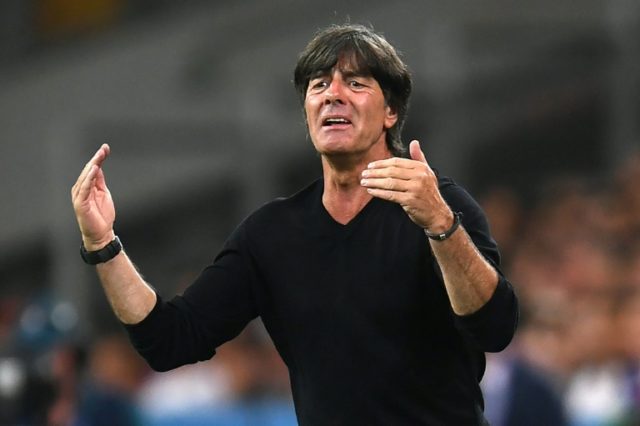Berlin (AFP) – Joachim Loew has had to part company with key players that helped build Germany’s success over the last decade after multiple retirement announcements in the last couple of weeks.
Philipp Lahm, Bastian Schweinsteiger, Miroslav Klose and now Lukas Podolski have all put an end to their glittering international careers in an era where Germany dominated world football.
Since 2006 Germany have reached the semi-finals of each major tournament, and after the heartache of falling to Spain in the Euro 2008 final they went on to lift the 2014 World Cup.
With a core group of players, destined to take their place alongside Germany’s greats, bidding farewell to the international stage, one would think their departure would leave a gap in the German team.
However, a new generation of players is destined to emulate the accomplishments of their predecessors as Loew looks to keep Germany among international football’s elite.
His young squad showed their worth at the European Championship in France with the likes of Julian Draxler, Mario Goetze and Thomas Mueller all under 27 years of age; even Manuel Neuer is only 30.
The current crop of Germany players and those on the rise are products of the academy launched in 1998 after Germany’s disastrous 3-0 quarter-final loss to Croatia at that year’s World Cup.
The German FA realised that they needed to act to ward off stagnation and renew the quality of their youth prospects, who were becoming overshadowed by their European neighbours.
That prompted the country’s football authorities to ultimately invest 700 million euros ($784 million) into youth development over the next ten years.
With the arrival of Jurgen Klinsmann in 2004 came a new playing philosophy at the head of German football, the former Bayern Munich star bringing with him a different style and prioritising finesse over brute force.
And while the trademark values of German football such as strength and power remained embedded, the addition of tactical nous, speed and a possession-based approach to those fundamental traits propelled the Germans back to the elite of world football.

COMMENTS
Please let us know if you're having issues with commenting.